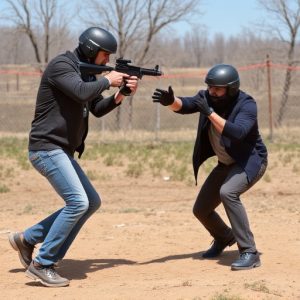Civilian Taser Ownership: State Laws, Requirements, and Concealment Options
Understanding state laws regulating stun gun ownership, especially for the most concealable design,…….
Understanding state laws regulating stun gun ownership, especially for the most concealable design, is crucial for prospective buyers in the U.S. Regulations vary widely, from strict permits and checks to simpler applications, with age restrictions typically ranging from 18-21. Knowing these legal details ensures compliance, avoids penalties, and guides users in selecting an acceptable stun gun according to their state's specific rules, empowering law-abiding citizens with responsible self-defense tools.
“In an era of diverse personal protection options, civilian tasers have emerged as a powerful yet controversial choice. This article navigates the intricate web of state laws governing stun gun ownership, offering insights into what constitutes a civilian taser and the requirements for acquisition. We explore the legal classification of these devices, delving into age restrictions, background checks, and licensing mandates. Furthermore, we unveil the best concealment options available, highlighting the most discreet designs on the market. Finally, we discuss the rights and responsibilities that come with owning a civilian taser.”
- Understanding State Laws Regulating Stun Gun Ownership
- The Definition of a Civilian Taser and Its Legal Classification
- Requirements for Acquiring a Stun Gun: Age, Background Checks, and Licensing
- Concealment Options: Designs That Offer Maximum Discretion
- Legal Implications of Owning a Civilian Taser: Rights and Responsibilities
Understanding State Laws Regulating Stun Gun Ownership
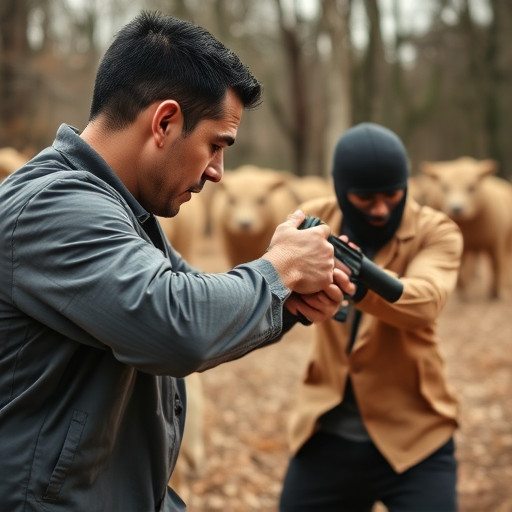
Understanding State Laws Regulating Stun Gun Ownership
In the United States, regulations surrounding stun gun ownership vary significantly from state to state. It’s crucial for prospective buyers to understand these laws before making a purchase, especially when looking into the most concealable stun gun design. Some states have strict requirements, including mandatory permits or licenses, background checks, and specific training certifications. Others may only require a simple application and proof of age. Delving into these legal intricacies is essential to ensure compliance and avoid potential penalties.
The type of stun device one can legally possess also differs across jurisdictions. Some states differentiate between stun guns, tasers, and other electronic control devices, each with its own set of regulations. Additionally, restrictions on where and how these devices can be carried vary widely. Knowing the specific laws in your state will help you choose a concealable stun gun that aligns with your needs while adhering to local regulations, ensuring both safety and legality.
The Definition of a Civilian Taser and Its Legal Classification
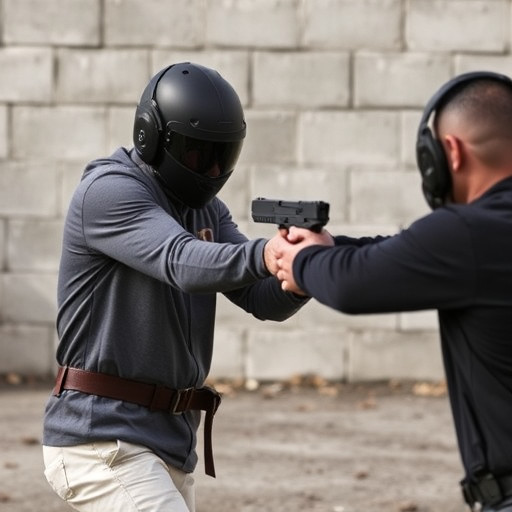
A civilian taser, also known as a stun gun, is a portable electroshock weapon designed to temporarily incapacitate a person through electric current. Unlike their law enforcement counterparts, these devices are typically smaller and more discreet, often marketed as the most concealable stun gun design available. They are intended for personal protection against potential threats, be it in one’s home or while traveling. Legally, civilian tasers fall under a specific category of non-lethal weapons regulated by state laws.
The classification of these devices varies across jurisdictions, but they are generally categorized as less-lethal or non-deadly force tools. This legal status influences the requirements for ownership, such as age restrictions, background checks, and training, ensuring responsible use while also providing individuals with a means to protect themselves in situations where conventional self-defense measures may be limited or inappropriate.
Requirements for Acquiring a Stun Gun: Age, Background Checks, and Licensing
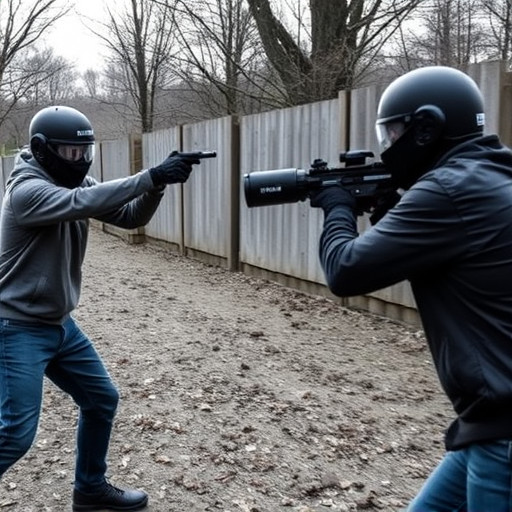
In many states, acquiring a stun gun involves specific requirements aimed at ensuring responsible ownership and public safety. One of the most common regulations is an age restriction; potential buyers must be a minimum age, typically 18 or 21 years old. This rule is in place to prevent underage individuals from possessing such devices, considering the potential risks involved.
Background checks are another essential aspect of stun gun ownership laws. Buyers may need to undergo a comprehensive background check to ensure they have no criminal history or other disqualifying factors. Additionally, some states require applicants to possess a valid permit or license for carrying concealed weapons before they can acquire a stun gun. This additional layer of regulation helps guarantee that only law-abiding citizens with the necessary training and approval can own these powerful self-defense tools, particularly focusing on the most concealable stun gun design.
Concealment Options: Designs That Offer Maximum Discretion
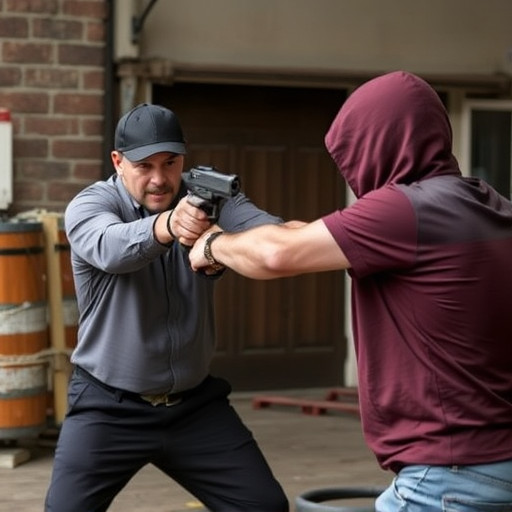
When considering civilian taser ownership, one of the primary concerns is discretion. Among the various stun gun designs available, some offer superior concealment options for users seeking to keep their self-defense tool hidden from prying eyes. These innovative designs prioritize comfort and compactness while ensuring the device remains secure and easily accessible.
The most concealable stun gun design often features a slim profile, ergonomic grip, and materials that mimic everyday objects or clothing. Some models resemble a flashlight or a pen, allowing users to carry them without drawing unnecessary attention. Others are designed to fit comfortably in holsters tailored for firearms, providing a discreet option for those who prefer to keep their taser close at hand but out of sight.
Legal Implications of Owning a Civilian Taser: Rights and Responsibilities
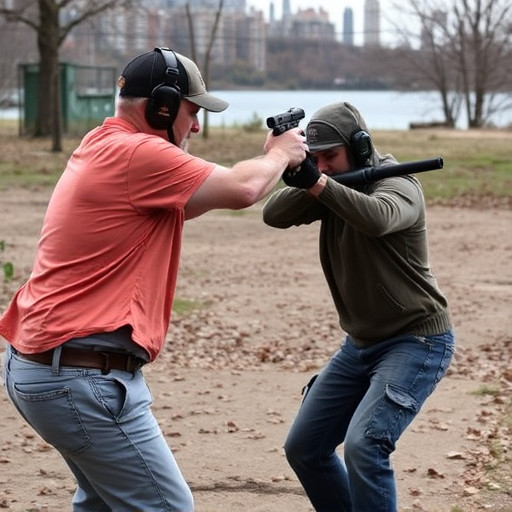
Owning a civilian taser comes with unique legal implications and rights, especially considering the evolving regulations around non-lethal force tools like stun guns. In many jurisdictions, these devices are classified as firearms or weapons, subject to strict controls and ownership restrictions. The legal landscape varies widely from state to state, dictating who can purchase, possess, and carry a taser.
One of the key considerations for owners is understanding their responsibilities. This includes adhering to specific laws regarding self-defense, use of force, and reporting requirements. For instance, some states might mandate minimal training or certification for taser usage. Additionally, the most concealable stun gun design might not be legally accessible to everyone due to licensing or permit systems. Understanding these nuances is crucial to ensure compliance and full enjoyment of one’s rights as a civilian taser owner.
When considering civilian tasers, understanding state laws is paramount. From age restrictions to background checks and licensing requirements, each jurisdiction has its own set of rules. For those seeking maximum discretion, the most concealable stun gun design can be a practical choice, but it’s crucial to know your rights and responsibilities. By staying informed about these regulations, you can ensure compliance while enjoying enhanced personal safety.

